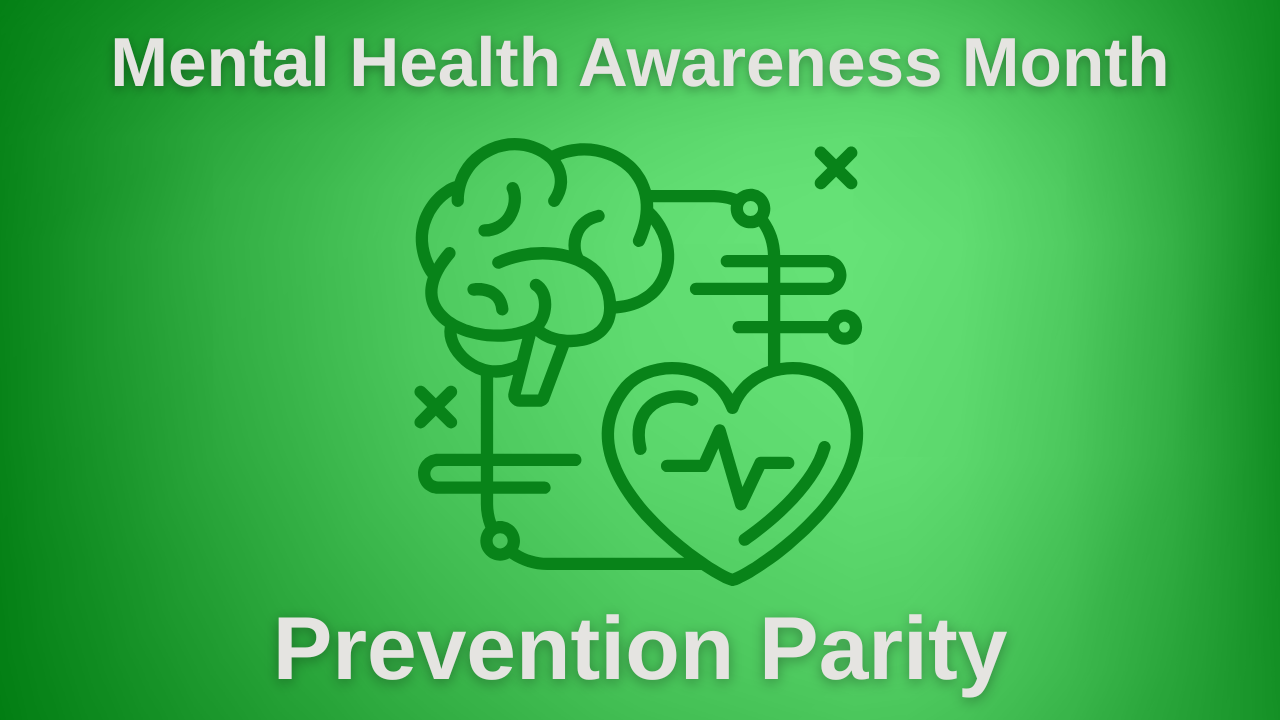
Medical providers talk with us about preventing high blood pressure, high cholesterol, weight gain, low bone density, diabetes…shall I go on? Each year I visit my primary care provider to have these conversations and as I have gotten older, some conversations have trickled in around perimenopause and menopause as well. But the same emphasis has not been given to my mental health. There have not been conversations about my family’s well-being, how I am handling the launch of my first-born to college, or simply how I manage my day-to-day stress. And yet…it is no longer a secret how stress impacts our body. Why do we not close the loop on our health recognizing the relationship between the body and the mind? Why do we not give the same degree of attention, importance, and infrastructure to maintaining our mental wellness and preventing mental illness?
For our children, prevention in mental health seems to have typically been left up to school programs. Unfortunately, many children have come to tune out those messages, even my children have admitted to blatantly dozing off during those lessons. While universal prevention and health promotion programs such as these remain valuable to many, I have come to wonder if they allow students to have that thought of “it won’t happen to me” or simply “this doesn’t apply to me.” I wonder if it also sends the message, that for most kids this group lesson will be enough…but for the “really troubled ones…” well then you are really “messed up and you need a therapist”. Does this perpetuate the stigma around mental health? Why is this one area of our health not given the same individual attention as our physical health?
Part of me thinks it is because mental health is one of the most amoeba-like parts of who we are as human beings. While we have figured out a lot about mental health, thank goodness, there is still a lot that is unknown. Personally, I believe it will always be unknown. I don’t think we are meant to be able to calculate and control all the elements and devise all the solutions. But what we do know is that things are not getting any better for our children and youth, and we must begin to do things differently.
At the Center of Excellence for Integrated Care, we have been talking with stakeholders, clinicians, and other states to best understand how to build the infrastructure that would support individualized conversations with children, youth, and families around mental and relational health. Insurance coverage of a mental health well-child check, especially (but not only) provided alongside the well-child visit already received by families, would provide a sustainable opportunity for providers to have these conversations around mental health and wellness. It would likely also create a more sustainable environment for integrated behavioral healthcare in primary care offices, which would increase accessibility to behavioral health services for many of the mild to moderate needs. It would be a chance to get upstream, to begin to turn the tides and shift the paradigm of waiting until a crisis occurs before therapeutic help is sought. Think of the many individuals, couples, and families who might benefit coming in early if that stigma of seeking this type of healthcare was eliminated. While we are right to continue resourcing the intervention and crisis needs of our children and youth, it is clear we must dig deeper to simultaneously discover how we can perhaps begin to live in a world where we are able to focus on thriving and not barely surviving.
Posted in Mental Health Awareness
